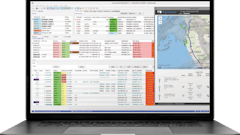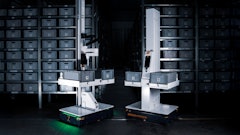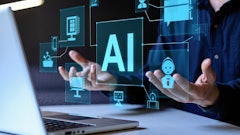
Within commerce’s dynamic evolution, high-level supply chains remain a constant underpinning force, allowing the seamless flow of goods and services across industries. Traditionally reliant on manual processes, the emergence of AI now heralds a pivotal transformation in this sphere.
Advancements Driving Supply Chain AI
One enduring cornerstone of AI-powered supply chain is predictive analytics. By harnessing AI algorithms, predictive analytics sifts through extensive historical and real-time data to anticipate future demand, disruptions, and evolving customer preferences. This foresight empowers supply chain professionals to make informed decisions on inventory management, production scheduling, and logistics, reducing risks of shortages or excess inventory and ensuring the timely availability of products. As AI algorithms evolve, the integration of predictive analytics becomes imperative for streamlined supply chain management.
Predictive technology has become one of the most disruptive technologies for countless industries – especially supply chain. Today, success in the supply chain is heavily rooted in our ability to make better, more informed decisions and forecasts, and as predictive analytics evolve, so do the possibilities for those operations.
Another groundbreaking advancement in AI for supply chains lies in swarm intelligence. Inspired by nature, swarm intelligence AI models mimic the behavior of swarms in optimizing complex logistics. Such models simulate the collective intelligence of decentralized systems, which bolsters more dynamic decision-making in real time. In 2024, swarm intelligence AI may further enhance route optimization, warehouse organization, and last-mile delivery, optimizing efficiency and resource utilization within supply chains.
Furthermore, explainable AI (XAI) emerges as a pivotal addition to the arsenal of supply chain innovations. In an era where AI-driven decisions are fundamental, XAI offers transparency by providing understandable explanations behind AI-generated insights and decisions. In turn, this transparency fosters trust and comprehension among supply chain stakeholders, allowing for better-informed actions. The ongoing integration of XAI within supply chains promises not just efficient operations – but also clarity and confidence in decision-making processes.
AI-driven automation also remains a transformative and time-tested force for supply chains. For instance, autonomous mobile robots (AMRs), equipped with advanced AI algorithms, are set to revolutionize warehouse operations. These AMRs possess adaptive learning capabilities, enabling them to collaborate seamlessly with human workers, optimize inventory management, and fulfill complex order processes. Looking ahead, integrated AMRs could continue heightening efficiency and flexibility while enhancing the overall operational landscape.
The Future
As supply chain AI advances at an increasingly rapid pace, its future implications shift almost daily. Current breakthroughs are already giving way to subsequent revelations regarding the technology’s almost limitless applications. As a result, AI continues to subdivide into a diverse field of resources and solutions.
This technology is evolving almost daily, and that only stands to benefit our collective efficiency, knowledge and preparedness to navigate an increasingly tech-driven tomorrow.
For example, AI's trajectory is currently veering toward integrating neurosymbolic AI, a hybrid model blending symbolic reasoning with neural networks, promising enhanced decision-making capabilities by amalgamating logical reasoning and pattern recognition. Meanwhile, the emergence of hyperautomation stands to further integrate advanced AI technologies like natural language processing (NLP) and robotic process automation (RPA). This fusion aims to automate intricate end-to-end processes, propelling supply chains toward unprecedented efficiency and agility. The rise of quantum machine learning (QML), on the other hand, embodies a new era in data processing, offering exponential computational power to decipher intricate supply chain intricacies, optimize complex scenarios and refine predictive analytics.
These advancements forecast a future where AI-driven supply chains transcend conventional paradigms, functioning as agile, autonomous ecosystems capable of navigating complexities with unparalleled sophistication and foresight.
















